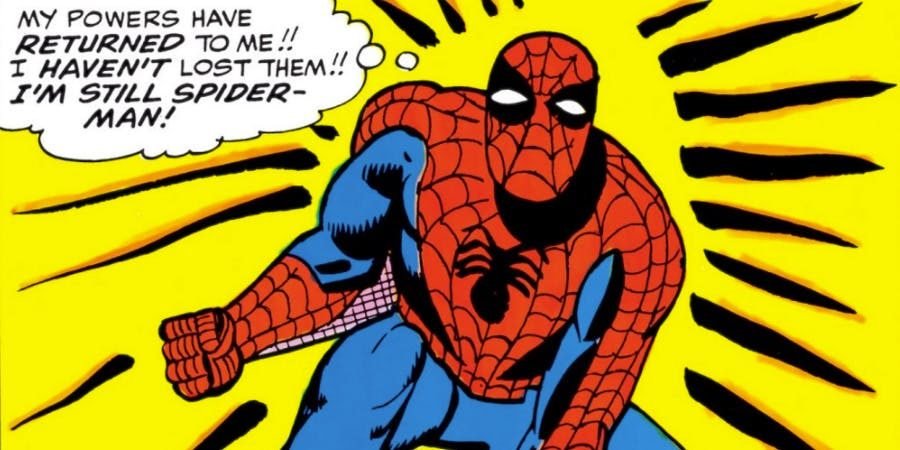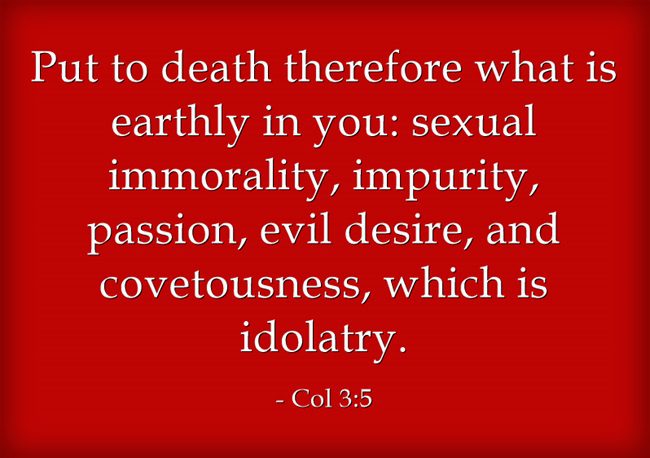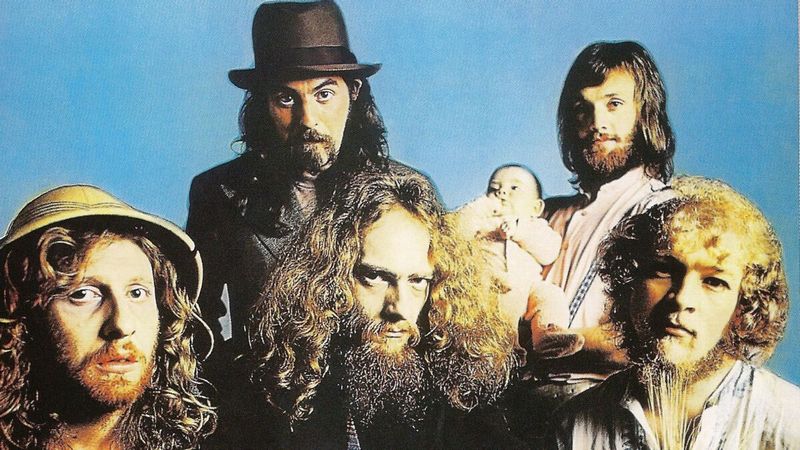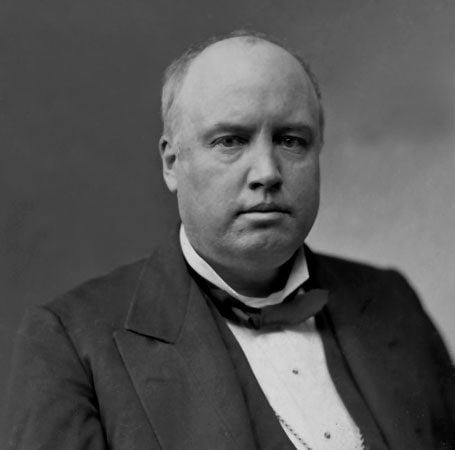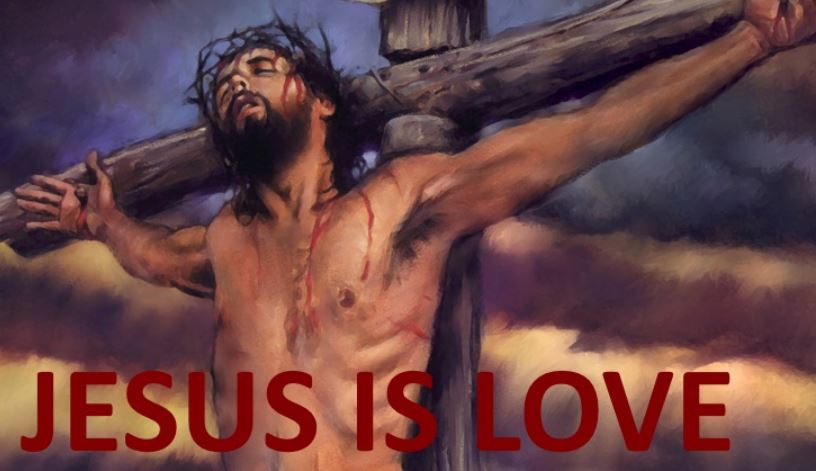
Several years ago, Will Cunningham, the marriage pastor at Mission Hills Church in Denver, Colorado sent me an email. Yes, another one of THOSE emails. Yes, another one of those emails, written by an Evangelical who can read, yet who ignores what he has read because of, well because of J-E-S-U-S. Evidently, Cunningham must have thought I was ignorant of who this Jesus was, or — better put — that I was ignorant of his human-crafted version of the man, the myth, the legend — Jesus, the Christ.
Every Evangelical who contacts me is asked to READ and THINK before he or she does so. The contact form for this site says, in part:
If you are an Evangelical Christian, please read Dear Evangelical before sending me an email. If you have a pathological need to evangelize, spread the love of Jesus, or put a good word in for the man, the myth, the legend named Jesus, please don’t. The same goes for telling me your church/pastor/Jesus is awesome. I am also not interested in reading sermonettes, testimonials, Bible verses, or your deconstruction/psychological evaluation of my life. By all means, if you feel the need to set me straight, start your own blog.
If you email me anyway — and I know you will, since scores of Evangelicals have done just that, showing me no regard or respect — I reserve the right to make your message and name public. This blog is read by thousands of people every day, so keep that in mind when you email me whatever it is you think “God/Jesus/Holy Spirit” has laid upon your heart. Do you really want your ignorance put on display for thousands of people to see? Pause before hitting send. Ask yourself, “how will my email reflect on Jesus, Christianity, and my church?”
What I hope will happen when Evangelicals feel God leading them to send an email my way is that they will read the Dear Evangelical page and then choose to abandon their effort. Cunningham did read the Dear Evangelical page, along with Why Are So Many Evangelical Preachers Arrogant and Full of Themselves? Part One, Why Are So Many Evangelical Preachers Arrogant and Full of Themselves? Part Two, Why I Hate Jesus, and the About page. After reading and ignoring what was written on the Dear Evangelical page, Cunningham wrote me the following email:
Dear Bruce,
Thanks for your honest and vulnerable opinions on Christianity, Jesus, pastors, etc. I stumbled on your site by entering, “What happens when pastors become arrogant?”, and (an hour later) found myself still reading. Finally, I just decided to write you. My response is not an attempt to sway you back to faith in Christ. I simply want to connect.
Your blog, “I Hate Jesus”, obviously caught my attention. As I read it, I found myself agreeing––not because I share your atheist views, but because I believe we have constructed a terrible and tragic caricature of Jesus, and have forced him upon the gullible masses.
The real Jesus is worth loving, though.
The Jesus I love is the one who, from the beginning, made men and women equal––not just in essence, but in authority, as well. His earliest instructions to them were twofold: reproduce and rule, TOGETHER! The first time we see or hear anything that suggests patriarchal rulership, it is spoken in the form of a curse to Eve… “Your desire will be for your husband, and he will rule over you.” The Jesus I love is grieved at churches that prohibit women preachers, and households where men lord their assumed positional power over their wives.
The Jesus I love is completely comfortable in the presence of homosexuals, adulterers, porn stars, divorcees, and people of who hold non-Christian beliefs. And he is especially fond of atheists.
The Jesus I love is also fond of presidents, popes, kings, queens, and assorted politicians. And he loves pastors––even the arrogant assholes that you mentioned in your writings. Saul was once an arrogant asshole, until he saw the light and became a pretty decent fellow. The Jesus I love knew just what Saul needed in order for him to change his arrogant ways. And He waited patiently, until just the right moment came along… then He helped Saul see things as they really were. Now, we know him only as the Apostle Paul.
The Jesus I love made mountains, oceans, sunsets, birds, wine, sex, and more. All for our enjoyment! If He was here today, I think He’d probably dig Zagnuts, too. And I’m sure He would approve of deep dish pizza.
The Jesus I love hates certain things, for sure. He hates dishonesty. He hates pride. And He is especially grieved when His own children don’t love each other.
The Jesus I love IS love. If the cross proves anything, it proves this. Thus, I can be confident when I say that He also loves Bruce Grr-in-Sir and his lovely wife, Polly. Perhaps we will meet someday, Bruce. Until then, I am your friend…
Will Cunningham Marriage Pastor at Mission Hills Church in Denver, CO And former asshole
Cunningham is a staff member at a multi-campus megachurch in Denver. The church has over one hundred staff members and elders. Astoundingly, ninety-eight percent of staff members and elders are white. That said, women are well represented, though none of the elders or top-shelf pastors is female, so I question Cunningham’s commitment to an egalitarian view of women and marriage. According to the church’s EFCA page, its annual income exceeds $13 million.
I searched in vain for a doctrinal statement, but as I browsed the church’s website it became clear that Mission Hills is an Evangelical church holding to typical Evangelical beliefs and practices. It’s not uncommon these days for Evangelicals to omit or hide their doctrinal statements. The reason, of course, is to get people to attend without having preconceived ideas about the church. However, at Mission Hills, beliefs matter, so why not put them out there for all to see? How is it not bait and switch to lure people into your church with promises of love and acceptance, only for them to find out that full admission into the fellowship of the ring requires fealty to the Bible and its teachings (or, more properly, the church’s peculiar interpretation of the Bible)?
More and more Evangelical churches are presenting themselves as LGBT friendly congregations. Come to our church, they say. We will love you exactly as you are. Here’s what’s not said: We believe homosexuality is a sin. We oppose same-sex marriage. Our goal is to present LGBT people with the life-changing gospel of Jesus in the hope that they will repent of their sins and follow Jesus. And in following Jesus, they will need to, at the very least, live a celibate life. Better yet, embracing Evangelical heterosexuality would be da bomb!
It’s really easy for LGBT people to test whether a church is actually as gay-friendly as its members say they are. Go to the pastor and ask the following:
Pastor Craig, my gay wife and I really love attending Mission Hills Church. We both are followers of Jesus, and we would love to renew our wedding vows in church. Would you be willing to let us do so? We would also like to become members of the church and begin serving in some capacity — say on the worship team or starting a new class for LGBT people. Wouldn’t that be awesome, Pastor Craig? Imagine how our class could be used as a way to say to the LGBT community that Mission Hills really does love them as they are and has no interest or desire in changing them. Wouldn’t it be wonderful for LGBT people to learn that Mission Hills supports them fully regardless of their sexual orientation?
Let the stammering, stuttering, and ‘splaining begin. Churches such as Mission Hills may, in a warped way, “love” LGBT people, but over the long term that “love” will be used to bring change and conformity. After all, isn’t that what the Bible says? That humans are broken sinners is need of “fixing,” and the only person who can fix them is Jesus. Those who are born again, the Good Book says, become new creations in Christ. The old life passes away and all things become new — including whom you have sex with and whom you are married to.
Cunningham believes that many Evangelicals have constructed a false Jesus; the Jesus featured in my post, Why I Hate Jesus. (This post, by the way, is the most widely read post on this site.) In his mind, this Jesus is a false Jesus. I will assume, then, that the millions and millions of people following this false Jesus are not Christians. A false Jesus is, according to the Bible, an antichrist. Thus, the rational conclusion of Cunningham’s claim is that these Evangelicals are following an antichrist. Is this really what he wants to say? If yes, then how is his narrow, defined view of Jesus and Christianity any different from the beliefs of other sectarians? Isn’t the real truth here that all Christians create a God/Jesus in their own image; that, in fact, there are as many Jesuses as there are Christians; that the Jesuses of today are very different from those years ago; that Evangelical Jesuses bear little or no resemblance to the Jesus who walked the dusty roads of Palestine?

Cunningham would have me believe that his Jesus is LOVE. I will assume Cunningham is Trinitarian. If he is, then he believes that Jesus is God. And if Jesus is God, then he is culpable for all the things God did in the Old Testament, the New Testament, and will yet do, according to the book of Revelation. Let’s take, yet again, Cunningham’s theology to its logical conclusion:
- It’s the Jesus-is-Love God® who drowned millions of humans in Noah’s flood, including children, pregnant women, and unborn fetuses. This God saved eight people out of the millions he suffocated with water. Where, pray tell, do we find LOVE in this story? If I set the entire world on fire, killing everyone except Polly and me and our six children, would future generations say of me that I murdered the human race because I loved them? Of course not. I would rightly be remembered as a maniacal psychopath. And let’s not forget the uncounted millions of innocent animals who perished, all because God was pissed off at humans. The Jesus-is-Love God® killed puppies and kittens, dammit! What does that say about him?
- It’s the Jesus-is-Love God® who killed Uzzah, a devoted follower of his, all because, with good intention, he dared to touch the Ark of the Covenant to keep it from falling. It seems, then, that the Jesus-is-Love God® is quite similar to Fundamentalists with their strict rules and subsequent punishments for failure to obey. (There are 635 laws in the Old Testament.)
- It’s the Jesus-is-Love God® who, during his time on earth, allowed Herod to slaughter all the male children under the age of two. The Jesus-is-Love God® sure loves the little children, all the children of the world, right? I mean, look at all the children who are starving and living under threat of violence and death? If the Jesus-is-Love God® truly loves the little bitty babies in his hand, why does he ignore their plight?
- It’s the Jesus-is-Love God® who did nothing when his people, the Jews, were slaughtered during the siege of Jerusalem in 70 CE. It was the same the Jesus-is-Love God® who took a vacation and couldn’t be reached when Hitler and Nazis murdered six million Jews.
- It’s the Jesus-is-Love God® who will one day rain down on earth the violence, savagery, and death recounted in the book of Revelation. Revelation reads like a book co-authored by Dexter and Hannibal Lecter. Why, if HBO produced a TV series on Revelation, it would require an NC-17 rating for blood and gore. Yet, the Jesus-is-Love God® is reputedly a man of love, peace, kindness, and Snickers bars.
Despite all the murderous violence perpetrated by the Jesus-is-Love God®, Cunningham would have me believe that this Jesus indeed loves me and has a super-duper, supercalifragilisticexpialidocious plan for my life.
I assume Cunningham believes in the existence of Heaven and Hell and believes that all humans will stand before God one day and give an account for their lives. In my mind, this is where the proverbial rubber meets the road. As I bring Cunningham’s Jesus-is-Love God® before the throne of Bruce Almighty, all that matters to me is what Cunningham believes about Hell. This is, for me, the test of tests, that which shows the true nature of Will Cunningham and Mission Hills Church. The Bible is clear on who created Hell — the Jesus-is-Love God®. The Bible is also clear on who puts people in Hell — the Jesus-is-Love God®. The Jesus-is-Love God® will torture the inhabitants of Hell for eternity all because:
- They worshiped another God besides the Christian God
- They were born in the wrong geographical location to the wrong parents
- They had the wrong Evangelical beliefs and worshiped the false Jesus
- They loved whom they loved and had sex with them, despite what the Bible said about their sexuality
- They were atheists, agnostics, Pagans, humanists, Buddhists, Muslims, etc.
According to orthodox Evangelical theology, far more people will be in Hell (Lake of Fire) than Heaven (the Eternal Kingdom of God). The Bible says the path to Heaven is a straight and narrow way and few people will make it through the pearly gates. The Bible also says Jesus is THE way, THE truth, and THE life. The definite article makes it clear that there is only one way, truth, and life, and, according to Cunningham and the Mission Hills church, the Jesus-is-Love God® is the only way, the only truth, and the only life. If all roads lead to Heaven, Cunningham wouldn’t have bothered to email me. He sincerely believes my wife and I are on the wrong path, a path that ultimately leads to eternal damnation.
What I want Cunningham to understand is that from the unbeliever’s perspective, his view of love is anything but. As long as there is a Hell and non-Christians end up in that Hell, it cannot be said that Jesus is l-o-v-e. Now, perhaps someday Evangelicals will take Thomas Jefferson’s scissors to the Bible and cut out the pages and pages of things that offend. Until then, unbelievers such as myself will continue to see the Bible God as anything but a God of love.
Lastly, I want to address Cunningham’s benediction:
The Jesus I love IS love. If the cross proves anything, it proves this. Thus, I can be confident when I say that He also loves Bruce Grr-in-Sir and his lovely wife, Polly. Perhaps we will meet someday, Bruce. Until then, I am your friend…

Cunningham is confident that the Jesus-is-Love God® loves Bruce and Polly Gerencser. How could he possibly know this? There’s nothing in the Bible that says he loves us. In fact, I could make a persuasive argument from the inerrant Word of God that Cunningham’s Jesus-is-Love God® does not, in fact, love us. Whether due to us not being numbered among the elect, or us committing an unpardonable sin, it seems to me that we have crossed the line of no return. We have done despite to the Spirit of grace, and we have trampled under our feet the blood of the covenant. We not only reject the teachings of Christianity, we are as confident as Cunningham is with his Jesus-is-Love God® that the Christian God is a work of fiction, and that the “resurrected” Jesus does in fact lie buried somewhere in the sands of the Middle East. We are also confident that the Bible is not a supernatural book written by a supernatural God, and its teaching are largely irrelevant, and at times harmful, for twenty-first century dwellers. Fourteen years ago, we walked out of the Christian church, never to return. We left the bondage of Egypt and are on a journey to the Promised Land — a land where love, kindness, peace, and reason prevail. We are now in our sixties. Soon, death will come knocking on our door. While neither of us wants to die, we are ready to face life’s end, confident that once we draw our last breaths the only thing that will remain is our ashes, the memories people have of us, and the mark we made while living. We will, if death claimed us today, be grateful for the forty-four years we have spent together. We will also be grateful for our children, grandchildren, daughters-in-law, extended family, friends, and our two cats. While we wish we hadn’t wasted so much of our lives serving a non-existent deity, we know those experiences have made us who we are today, and they allow us to provide compassionate help to those trying the extricate themselves from the hands of the Jesus-is-Love God®.
Cunningham speaks of meeting us someday. Is this his passive-aggressive way of reminding us that we will only meet him if we come to love and know his Jesus-is-Love God®? Or, perhaps he thinks we will run into each other in Ohio or Colorado. We live twelve hundred miles from each other, so it is unlikely that our paths shall ever cross. Besides, Cunningham is assuming that Polly and I would want to meet him. Why would we? What in his email says to either of us, this is a man whom we would love to have over for dinner or go to strip club with? As many pastor-Evangelical interlocutors have done, Cunningham presumes he can, without my participation, be my friend. Evidently, the word friend doesn’t mean much to him. I actually have very few friends: my wife, children, Polly’s parents, my siblings, a man I have known since third grade, my editor, and a handful of people I have met over the years through this blog. I have scores of acquaintances, some of whom are closer than others, but friendship? I zealously protect the word “friend,” reserving it for the people who would stick by my side no matter what. Cunningham is my age, but perhaps he has been infected by the Facebook spirit of the age and everyone he comes in contact with is his friend. I choose, instead, to insist that the word friend has meaning, and those I call “friend” are special people who have embraced me as I am, and I have done the same for them. Cunningham and I will never be friends. First, I don’t want to be friends with him, and second, we have very, very little in common. I am not trying to be mean here, but I don’t want the good pastor to think that because he sent me an email, we are, in any way, friends. We are not.
Nothing I have said in this post will keep Evangelical zealots from sending me email. In their minds, the will of God as perceived by them supersedes my personal desires, and click, off goes another email to the former Evangelical pastor turned atheist Bruce Gerencser. Such is the nature of having a widely read public blog.
Bruce Gerencser, 68, lives in rural Northwest Ohio with his wife of 47 years. He and his wife have six grown children and sixteen grandchildren. Bruce pastored Evangelical churches for twenty-five years in Ohio, Texas, and Michigan. Bruce left the ministry in 2005, and in 2008 he left Christianity. Bruce is now a humanist and an atheist.
Your comments are welcome and appreciated. All first-time comments are moderated. Please read the commenting rules before commenting.
You can email Bruce via the Contact Form.


